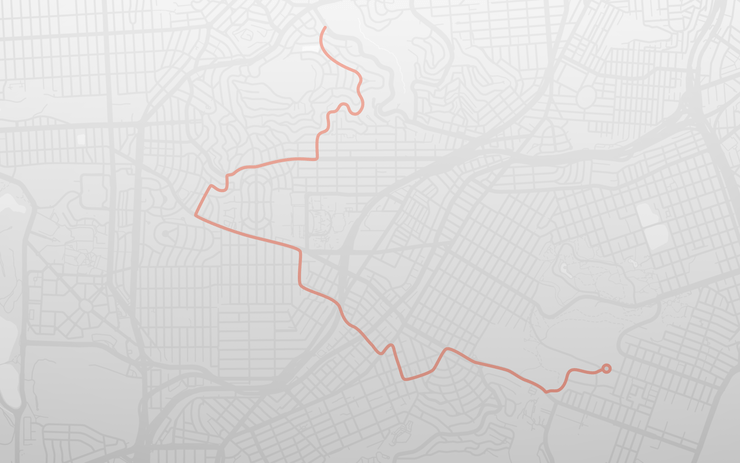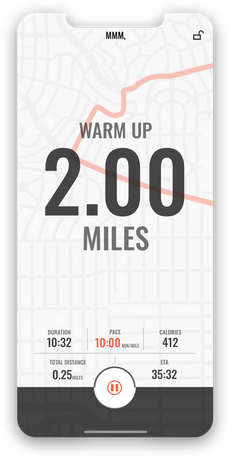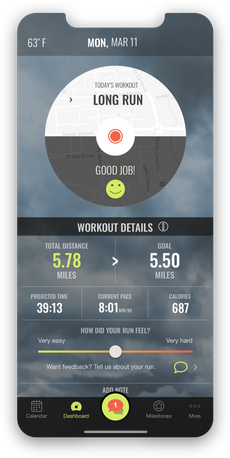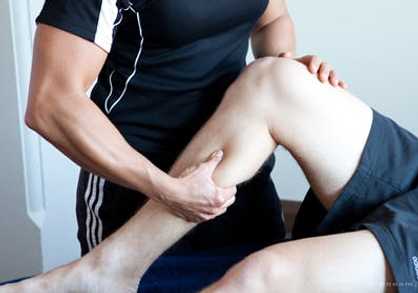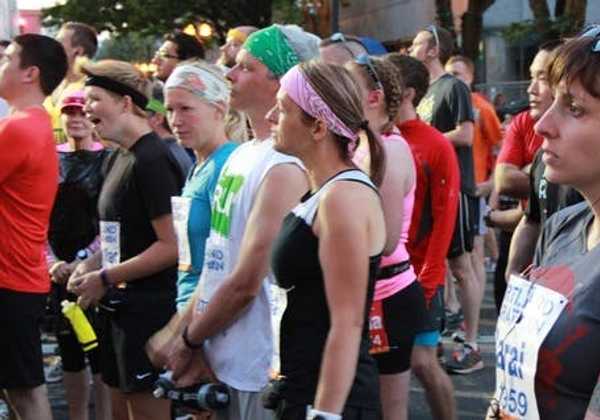Marathon Training Meal Plan
December 10th 2019
If you are interested in running a marathon, then observing a marathon training meal plan is important. Training for a marathon takes dedication, time, and proper fuel in the form of a solid diet plan.
While you're training, keep an eye both on the snacks you eat to power a long training run and on the nutritious meals you eat throughout the rest of the day. Both can make a difference in whether you’ll be crossing the finish line or hitting a wall in the middle of training.
To follow a proper marathon training meal plan, ensure you do the following:
Focus on Carbohydrates
Carbs are an important part of your marathon training meal plan. Although all three macronutrients are important for distance runners, carbohydrates are the cornerstone because they're your body's preferred source of fuel.
According to Registered Dietitian Janice H. Dada, a marathon runner needs between 7 to 10 grams of carbs per kilogram of body weight during the peak training period. Aim to include plenty of complex carbohydrates in your diet plan, including whole-grain
bread, whole-grain pasta, brown rice, and legumes. Running Coach Hal Higdon recommends limiting simple carbs, such as honey, sugar, and jam, to 10 percent of your calories.
Don't Forget Your Fluids
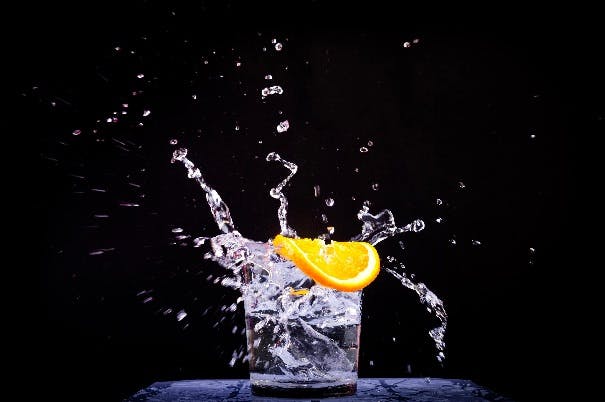
When drinking water, you should aim for a total intake of about half your body weight in ounces every day, so if you weigh 150 pounds, try and drink 75 ounces of water. Try to do most of your hydrating before and after a workout, when you need it most, and avoid relying on pre-workout energy drinks to carry the load.
Also, lay off the booze. Alcohol has a dehydrating effect on the body and it also affects blood sugar levels. Since distance runners depend heavily on stored glycogen from blood sugar for energy, this is bad news for your training.
If you're committed to getting the most out of the hard work you're putting in, abstention is your best bet.
Electrolytes are Important
Electrolytes are an important part of your marathon training meal plan. Sodium is the most important electrolyte you’ll lose during your run. Sodium helps runners by easing muscle contractions and cramps and maintaining fluid stores. Sports drinks are a source of sodium, potassium, and other vital electrolytes, but if you’re marathon training in hot weather, you may need to further supplement with 400–800 mg of sodium in the form of salt or electrolyte tabs in your water or sports drink.
Protein
Protein is an essential component of all your tissues and an important part of your marathon training meal plan. It's especially valuable in helping you build and repair muscle, which you're doing a lot of while training.
The average person training for a 5K does fine with about 0.5 grams of protein per pound of body weight so the average 140-pound person benefits from 70 grams per day. Lean proteins such as fish, white-meat poultry, and trimmed steak are ideal options.
Fats
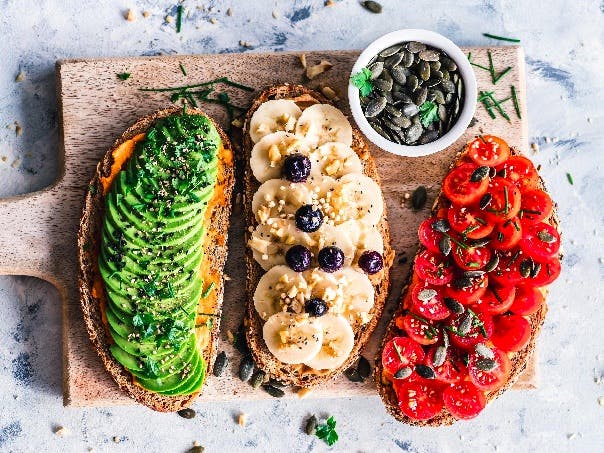
Fats get a bad rap, but the unsaturated kind provides support for vitamin absorption. Some, such as the Omega 3s, reduce inflammation so you recover from your runs adequately.
Between 20 percent and 35 percent can come from fat, says the Institute of Medicine. Avocado, salmon, and nuts are good sources of unsaturated fats.
Sample Meal Plan for Runners
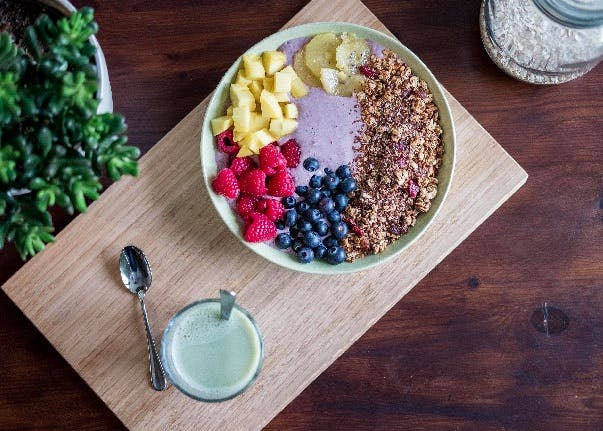
It is important to keep in mind that eating a well-balanced diet will enhance your performance time when it comes to training for a marathon. This means one should think about taking in nutrient-dense meals and snacks, keeping in mind the need to incorporate all three macronutrients (sugars, fats, and proteins).
It is recommended to start the day with a complex carbohydrate along with a rich protein source. And of course, adding fruit will provide additional fiber and nutrients.
Some examples are greek yogurt with berries and whole grain cereal, oatmeal made topped with fruit, or a smoothie made with fruit or veggies and milk. Lunch might include whole grain bread with turkey, avocado, and greens or a salad with chicken, beans, and vegetables along with whole grain crackers. Dinner can include a piece of grilled salmon, sautéed string beans and sweet potato, or chicken, broccoli, and brown rice.
The importance of your meal plan is to be sure to provide rich sources of complete proteins, complex carbohydrates, and healthy fats. In addition to three balanced meals, it’s important that you add in healthy snacks.
Feeding your body on a regular basis allows for improved digestion and allows for your metabolism to remain intact. Also, these snacks should be coordinated with the training schedule, as it is important to refuel your body after a workout.
These snacks or mini-meals should also be nutrient dense to meet the needs of the body and to maximize your ability to prepare for the marathon. Snacks can include fruit and nuts or peanut butter on crackers.
Practice Fuelling Mid-run
Over the course of 26.2 miles, your body will not be able to propel you forward properly without fuelling every 30 to 45 minutes. Abide by the motto “fuel early and often” and build this into your training routine, aiming to take on at least 30g of carbs per hour.
The key is to stay ahead of any feelings of exhaustion, so keep topping up the tank, even if you don’t feel you need it. Once you feel your energy levels start to crash, it’s too late to get the maximum benefits from calorie intake.
Recover From Training the Right Way
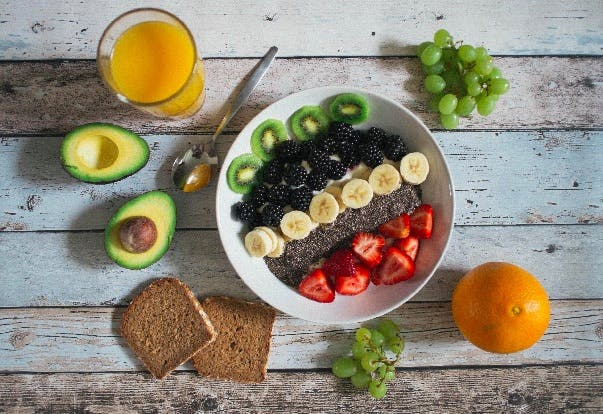
Within 30-45 minutes of finishing a long run, you need a recovery snack consisting of both carbs and protein. This is an important window of time when your body is very responsive to nutrition and will quickly use any nutrients to rebuild and repair muscles. How you choose to refuel in this crucial period is crucial to your marathon training meal plan.
What To Eat and When
1. Pre-Run
According to Isabel Smith, a Registered Dietitian, “pre-run snacks should be made up of
easily digestible carbs and should be low in fiber, fat, and protein.” Making sure to eat the
right snacks will provide fuel and prevent cramping.
Here are some high carb snacks to get you started:
● Greek yogurt topped with berries
● Crackers with hummus
● Whole wheat toast with almond butter and an apple
● Banana slices with peanut butter
2. During the Run
Stick to only water if your training session will be an hour or less. For runs over an hour,
supplement with an extra 30–80 grams of carbohydrates per hour.
3. Post-Run Meal
A good post-run recovery meal should provide a mix of carbs and lean proteins. Carbs will
replenish your energy levels, while protein helps your body repair muscle tissue. Also,
consume about 20 ounces of fluid for every pound of fluid lost during your run.
Give It Your Best Shot
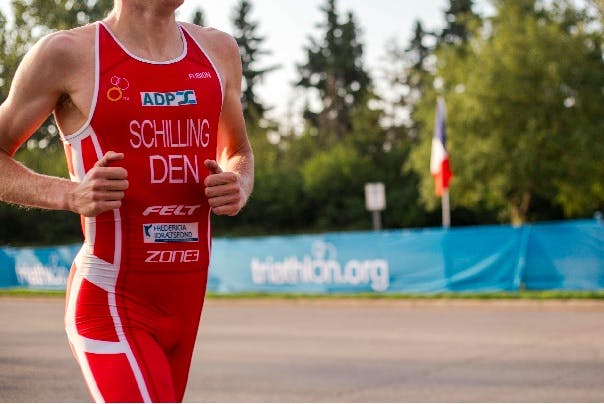
By taking the time to plan out a training schedule along with a balanced diet, you will be well on your way to finishing your first marathon. Take the time to understand the various macronutrients your body needs to give it the proper fuel and allow for your muscles to repair. Follow a marathon training meal plan and with just a little extra planning, you will easily be able to go the distance and cross that finish line! Don’t forget to check out the SportMe app to track your progress and always be race-ready.

